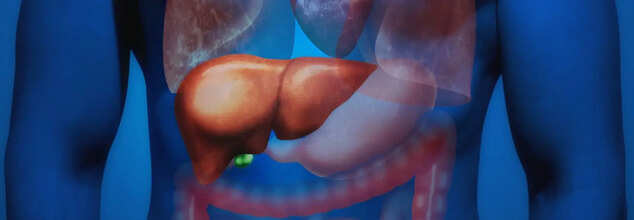- Health Conditions A-Z
- Health & Wellness
- Nutrition
- Fitness
- Health News
- Ayurveda
- Videos
- Medicine A-Z
- Parenting
- Web Stories

Credits: Canva
World Alzheimer's Day: History, Significance And All On Dementia Awareness
Every year on September 21, World Alzheimer's Day is observed. It is a global effort to raise awareness and challenge the stigma around Alzheimer's disease and other dementia.
Alzheimer's is a severe brain disorder of memory loss and confusion. If it is not diagnosed and managed on time, it can also adversely impact one's mental abilities of learning, thinking, reasoning, remembering, problem-solving, decision-making, and attention.
Every year, a particular theme is followed, this year, the theme is "Time to act on dementia, Time to act on Alzheimer's".
The theme focuses on attitudes towards dementia and addresses the stigma and discrimination that still exists. Some of the common attitudes towards dementia are the common belief that dementia is a normal part of ageing, with 62% of healthcare practitioners actually believing it to be true. 35% of carers had hidden a diagnosis of dementia and 1 out of 4 thought that nothing could be done about it.
History
The first time this day was introduced was in 1994 in Edinburgh, on the occasion of the 10th anniversary of Alzheimer's Disease International (ADI). This organisation was founded in 1984 to support and guide Alzheimer's disease patients and their families.
The organisation also runs Alzheimer's University and aims to connect people around the world to promote Alzheimer's Month, which is also celebrated in September.
What Is Dementia, What Is Alzheimer's?
As per Neha Sinha, Dementia Specialist, CEO and Co-founder of Epoch Elder Care, it is a progressive decline in cognitive abilities, including memory, language, problem-solving and other thinking skills. It is severe enough to interfere with daily life. "It primarily affects older adults, with Alzheimer's being the most common," she says.
Alzheimer's accounts for 60 to 80% of all dementia cases around the world. It is estimated that the prevalence of Alzheimer's worldwide is around 2.4 crores.
While Dementia is the general term for a range of symptoms that affect cognitive abilities, while Alzheimer's is the most common form of dementia.
Shilpi Saraswat, Clinical Psychologist at Sakra World Hospital, Bengaluru points out that the main risk factors of dementia are age, genetics, long-term health conditions, lifestyle choices such as smoking or excessive alcohol use, one's gender and cognitive reserve.
Dementia In Indian Household
Sinha points out that in India, the subtle onset of dementia is quietly emerging as a silent epidemic, affecting millions of households across the country. As per the Neurological Health Atlas of India, 8.8 million elderly are currently living with dementia. "A number that can be doubled by 2036," says Sinha.
Sinha also points out that since its earliest symptoms are often ignored as signs of early ageing, Dementia stays ignored and creeps into the household unnoticed.
"Discovering Alzheimer’s early can be a pivotal moment, offering a window of opportunity that changes the course of the disease. With an early diagnosis, we can initiate medical treatments and a management plan, that may slow down the progression, giving patients and their loved ones more quality time together," says Sinha.
When care is tailored to the person, not just the disease, it profoundly enhances their quality of life. It’s about more than just managing symptoms—it’s about nurturing emotional well-being, maintaining dignity, and providing the support that adapts as the disease evolves.
Can Hearing Loss Lead To Dementia?
While age is one of the risk factors in dementia, Dr Sanjay Sachdeva, a senior ENT at HearClear India suggests a link between hearing loss and dementia.
As per a study by the Lancet Commission on Dementia, untreated hearing loss can give rise to greater cognitive decline and even account for approximately 8% of dementia cases worldwide. This means, 8 lakh of the nearly 1 crore new cases of dementia are diagnosed every year.
"Considering that auditory information plays a pivotal role in forming memories and associations, hearing impairment interferes with the brain’s ability to process auditory information, which consequently deteriorates memory and learning abilities," says Dr Sachdeva. Additionally, hearing loss in ageing people can go beyond the inability to hear things and can contribute to social isolation in them.
What Can Help Reduce It?
Saraswat point out that by modifying 12 risk factors through lifestyle changes, 40% of the dementia cases can be delayed.
Some of the specific actions include maintaining systolic BP of 130 mm Hg or less in midlife from around age 40 years (antihypertensive treatment for hypertension is the only known effective preventive medication for dementia).
Encouraging the use of hearing aids for hearing loss and reduce hearing loss by protecting of ears from excessive noise exposure.
Other such prevention methods include:
- Reduce exposure to air pollution and second-hand tobacco smoke.
- Prevent head injury.
- Limit alcohol use, as alcohol misuse and drinking more than 21 units weekly increase the risk of dementia.
- Avoid smoking uptake and support smoking cessation to stop smoking, as this reduces the risk of dementia even in later life.
- Provide all children with primary and secondary education about brain health.
- Reduce obesity and the linked condition of diabetes. Sustain midlife, and possibly later life physical activity.
- Addressing other putative risk factors for dementia, like sleep, through lifestyle interventions, will improve general health.

Credits: Canva
A New Blood Test Predicts Fatty Liver Disease 16 Years Ahead Of Diagnosis
Fatty liver disease, now called metabolic dysfunction-associated steatotic liver disease (MASLD), happens when extra fat builds up in liver cells without alcohol being the cause. Normally, the liver contains some fat, but if more than 5–10% of the liver’s weight is fat, it is considered a fatty liver. In its advanced stage, MASLD can develop into metabolic dysfunction-associated steatohepatitis (MASH), causing swelling and serious damage to the liver. Alarmingly, MASLD affects about 100 million people in the United States, including a growing number of children.
The disease often develops silently. Many people do not experience symptoms early on, but if it worsens, signs like fatigue, abdominal pain, jaundice, swelling, and even mental confusion may occur. Risk factors include obesity, diabetes, high cholesterol, rapid weight loss, poor eating habits, and certain medications.
A Breakthrough in Early Prediction
A new study offers hope for earlier detection. Researchers, led by Dr. Shiyi Yu from Guangdong Provincial People's Hospital in China, have developed a blood test that looks for five specific plasma proteins to predict MASLD years before symptoms show up. The findings are set to be presented at the Digestive Diseases Week meeting in San Diego.
The test was shown to be 84% accurate at predicting fatty liver disease five years in advance and 76% accurate at predicting it 16 years ahead of diagnosis. When additional factors like body mass index (BMI) and daily exercise habits were added, the prediction accuracy improved even more—over 90% at five years and 82% at 16 years.
This model was tested on two different groups—participants from the UK Biobank (over 50,000 people) and a separate group in China—showing promising results across diverse populations.
Why Early Detection Matters
Fatty liver disease not only damages the liver but also increases the risk of early death—primarily from cardiovascular diseases (CVD) rather than liver failure itself. The connection between MASLD and heart disease is strong, as both share causes like high blood sugar, high triglycerides, and obesity. That is why early diagnosis is crucial—not just to protect the liver, but also to manage the risk of heart disease.
Early identification through a simple blood test could lead to earlier lifestyle changes, medical monitoring, and interventions that can prevent serious complications like cirrhosis or heart attacks.
What You Can Do
Currently, there is no approved medication for MASLD. Treatment mainly involves:
- Maintaining a healthy weight through diet and exercise
- Controlling diabetes and cholesterol levels
- Avoiding alcohol
- Following medical advice if already diagnosed
Preventive steps include eating a balanced diet rich in lean proteins, fruits, vegetables, whole grains, and healthy oils, being physically active, and avoiding unnecessary medications.
Although the findings are considered preliminary until published in a peer-reviewed journal, this research marks a major advancement. It shows that a simple blood test could soon help millions of people know their risk decades in advance, giving them a chance to change the course of the disease before it's too late.

Credits: Canva
Why Is There A Growing Misinformation On Measles?
As the United States experiences the worst measles outbreak in over a decade with nearly 900 reported cases across 29 states, including deaths of two children, public understanding of the disease and its prevention strategy have been highly misunderstood due to political divide. The outbreak began in West Texas and has now spread widely. This highlights not only the persistent threat of measles but also the growing influence of vaccine misinformation, which have been fueled by political figures.
Why Is There A Resurgence of Preventable Diseases?
Measles, a highly contagious viral disease, had been largely controlled in the U.S. thanks to the widespread use of the measles, mumps, and rubella (MMR) vaccine. However, gaps in vaccination coverage have led to a resurgence. The current outbreak, centered in Texas but extending to almost 30 states, has alarmed public health officials. Two young girls who were otherwise healthy have died as a result of measles complications.
The disease is known for its rapid transmission. A single case can lead to significant spread if vaccination rates in a community fall below the 95% threshold needed for herd immunity. Children are particularly vulnerable; although the first dose of the MMR vaccine is typically administered at 12 months, increased parental concern has led some to seek earlier vaccination during the outbreak.
The Politics Of Vaccine
As per a new survey by KKF, a nonprofit health information group, only one-third of Republican-leaning parents were aware of the current measles outbreak. This was in comparison with the two-thirds of aware Democratic parents. The survey also found and 1 in 5 Republicans believes that measles vaccine is more dangerous than the diseases itself, this is double the rate of Democrats.
These gaps in perception are not new but are deepening. About 35% of Republicans surveyed believe the discredited theory that the MMR vaccine is linked to autism—a belief held by just 10% of Democrats. While belief in this theory has not increased significantly, public awareness of the claim has grown, reflecting the impact of persistent misinformation.
Adding to the confusion is Health and Human Services Secretary Robert F. Kennedy Jr., who has long been associated with anti-vaccine rhetoric. Since taking office, he has supported an investigation into environmental contributors to autism and has floated unproven theories, such as vitamin A being a preventative measure against measles. These statements, while not outright opposing vaccines, muddy public understanding and can discourage immunization.
At a time when clear public health messaging is critical, conflicting remarks from top officials are exacerbating distrust. Advocacy organizations like Immunize.org and The Immunization Partnership warn that such mixed messaging, especially when it originates from high-ranking leaders, undermines public confidence in vaccines.
In southern states like Texas, Louisiana, Arkansas, and Oklahoma, anti-vaccine activism has gained traction within state legislatures. Studies show that even lawmakers with medical backgrounds have not always supported public health measures, often influenced by political considerations and public pressure. Testimony from vaccine opponents at legislative hearings further amplifies misinformation, making it more difficult for facts to gain traction.
Meanwhile, healthcare providers are seeing the consequences firsthand. In California, where a 2014–15 outbreak began at Disneyland, pediatricians have treated severely ill children and taken stricter stances on accepting unvaccinated patients. These outbreaks serve as a stark reminder that the threat of measles is real and recurring.

Credits: Canva
IBS Awareness Month: Could Gravity Be Wrecking Your Digestive Health?
Every year in April, IBS Awareness Month puts the spotlight on one of the world's most misunderstood and elusive gastrointestinal disorders—Irritable Bowel Syndrome (IBS). Affecting about 10% of the world's population, IBS has puzzled physicians and researchers for years. Though its chronic and interruptive symptoms—abdominal pain and bloating on one end, constipation and diarrhea on the other—there remains no agreement on what actually triggers it. A new, daring theory is disrupting conventional wisdom by posing an unusual question- Is gravity the hidden culprit behind IBS?
Dr. Brennan Spiegel, a Cedars-Sinai Medical Center physician and researcher in Los Angeles, is leading the way to a new perspective on IBS—one that looks at the constant pull of gravity on our bodies. In the American Journal of Gastroenterology, Spiegel's theory is that IBS could be the body's failure to successfully deal with gravity.
It's an interesting concept. "We spend our whole life in gravity, are formed by it, but barely appreciate its constant effect on our body," Spiegel explained in an interview. "Each strand of our body is touched by gravity every day, from the top of our head to our gastrointestinal tract."
From a scientific perspective, this hypothesis borrows from evolutionary biology and neurophysiology. The human body over millennia has evolved complex systems—musculoskeletal, gastrointestinal, neurological—to deal with the downward pull of gravity. When these systems fail, Spiegel argues, they can initiate not only gastrointestinal symptoms but also a cascade of other complaints—muscle pain, fatigue, changed mood, and more.
What is the Gut-Brain Axis and the Roller Coaster Effect?
At its core is the connection between the gut and the brain—a widely documented characteristic of IBS. Individuals with IBS tend to experience a knotted stomach upon stress or a sensation of "butterflies" in stressful situations. Such gut feeling, as Spiegel speculates, may be attributed to the nervous system's adaptation to threats from gravity, such as the free-falling experience on a roller coaster.
"Our nervous system has mechanisms for perceiving and reacting to changes in gravity," he added. "When it flakes out or overcompensates, it may show up as IBS symptoms." This is related to another fascinating twist: the difference between individuals' reactions to gravitational stress. There are those who love roller coasters; others get nauseated or frantic—implying a continuum of what Spiegel refers to as G-force vigilance.
This might explain why IBS tends to overlap with disorders such as anxiety, depression, fibromyalgia, and chronic fatigue syndrome—all of which could potentially have an underlying sensitivity to gravitational stress.
Link Between IBS and Gravity
Spiegel's theory also explores deeper into anatomy. The abdominal cavity houses heavy organs that need to be "suspended" effectively. Genetic predispositions—lax connective tissues, a weak diaphragm, or spinal misalignments in some—may lead to sagging or movement of organs, including the intestines. The downward movement could affect motility, lead to cramping, and result in bacterial overgrowth—all prevalent in IBS.
In addition, the hypothesis delves into serotonin's role. This mood-regulating neurotransmitter also facilitates balance, blood circulation, and the movement of intestinal contents. "Dysregulated serotonin," Spiegel explains, "could actually be a type of gravity failure," which may connect depression, IBS, and even dizziness in a common physiological cycle.
What It Means for Treatment and Prevention
If confirmed, the gravity hypothesis has the potential to transform how we conceptualize—and treat—IBS. "The beauty of it is that it's testable," said Dr. Shelly Lu, director of the Division of Digestive and Liver Diseases at Cedars-Sinai. Unlike so many vague IBS theories, this one invites us to the possibility of targeted interventions.
This hypothesis can also assist us in better comprehending the reason why exercise, posture correction, core strengthening, and physical therapy work for most IBS sufferers. By fortifying the structural support system of the body, these strategies might decrease gravity's effect on the gut.
Symptoms, Triggers, and the IBS Daily Struggle
IBS is an individualized disease. Symptoms range widely and may include:
- Abdominal bloating, pain, and cramping related to bowel movements
- Alterations in stool appearance or frequency
- A feeling of not fully emptying the bowels, gas, and mucus in stool
Its triggers are also multifactorial. Stress and some foods—dairy, citrus, beans, wheat, and carbonated beverages—may exacerbate symptoms. Although food intolerances are not the cause in every case, many individuals find significant symptom relief through diet, such as a low FODMAP diet.
IBS isn't only an intestinal affliction—it can also blow a person's life off track. Chronic patients usually suffer from complications such as hemorrhoids due to constant diarrhea or constipation, and generally decreased quality of life. Research indicates that individuals with moderate to severe IBS experience three times more work absences compared to others. The psychological price is high too—aún and depression often accompany one another in IBS, one worsening the other.
Could this be the long-lost piece to a hundred-year-old puzzle? Maybe. Although further research is necessary to establish the gravity connection, the theory is already creating new avenues for comprehension and healing.
If you have ongoing digestive problems, see a healthcare provider. IBS is a treatable condition, and treatment options can involve medication, counseling, physical therapy, or dietary changes depending on your individual symptoms.
© 2024 Bennett, Coleman & Company Limited

